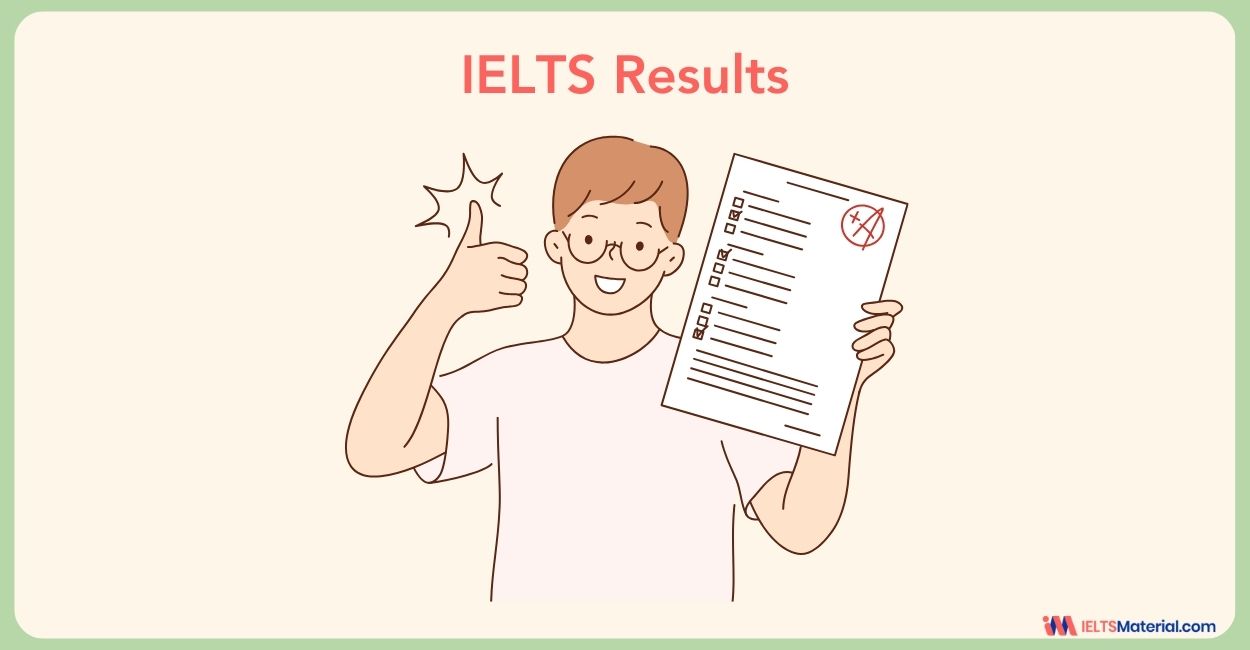The IELTS Revaluation Checklist
7 min read
Updated On
-
Copy link
Curious to know about the The IELTS Revaluation Checklist? Check out the significance of self-assessment while understanding the pros and cons and revaluation fees involved to make an informed decision about pursuing a revaluation.
Table of Contents

Limited-Time Offer : Access a FREE 10-Day IELTS Study Plan!
In the journey of pursuing higher education or immigration opportunities abroad, the IELTS Exam is often an important step. However, there may be instances when you feel that your IELTS test results do not accurately reflect your language proficiency and in such cases, you need to aware of the The IELTS Revaluation Checklist. Attaining a high band score opens up opportunities for further education, immigration, and employment across many countries.
The IELTS will accept an Enquiry on Results, or EOR, also popularly known as remarking or revaluation. It is necessary to be informed and prepared before diving into this process. Therefore, you must familiarize yourself with the revaluation process along with its importance. Dive into the various factors which you need to consider before applying for a revaluation, including the IELTS revaluation fees, success rates, and important considerations.
Let's check it out!
Understanding The IELTS Revaluation Checklist and its Importance
The IELTS revaluation process, also referred to as an Enquiry on Results (EOR), gives applicants the chance to ask for a review of their test results. It involves the reassessment of the Listening, Reading, Writing, and IELTS Speaking sections by a senior examiner. The IELTS Revaluation Checklist ensures fairness and accuracy in evaluating a candidate’s language abilities. You can request for a revaluation of one or more sections of the test.
However, before you proceed with an IELTS revaluation, it is crucial to consider several factors to make an informed decision. There are 3 main factors one needs to pay attention to before they apply for a revaluation of their IELTS test results.

1. A Self-Assessment
Consider your test-taking abilities critically before deciding to request a Revaluation. Take into account whether any external factors might have affected your results, such as test anxiety, illness, or technical issues. If you genuinely believe that there has been an error in the assessment, it may be worth considering a revaluation.
2. Consultation with an Expert
Seek guidance from experienced IELTS trainers or consultants who can evaluate your test performance objectively. They can help you determine whether a revaluation is likely to yield a significant change in your scores based on their expertise and knowledge of the assessment process.
3. Familiarize Yourself with Revaluation Procedures
Thoroughly understand the revaluation process outlined by the official IELTS governing body in your country. Additionally, try to understand the exact criteria, timelines, and documentation required to initiate the revaluation process. Doing this will help you prepare for the process and ensure that you meet all standards without difficulty.
Connect with our IELTS Experts to crack your IELTS exam and achieve a band 8+! Book a Free Demo
The Pros and Cons of The IELTS Revaluation Checklist
If the candidate feels that the marks awarded are lower than what they deserved, they can apply for revaluation by submitting The IELTS Revaluation Checklist along with the fees. The chance of a second marking may help you get the marks you desire to fulfill the academic, professional, or immigration purpose. However, revaluation is not the solution in every case, whether you are taking the IELTS Academic or General Training. It has some pros and cons for which every test taker should be aware of them before going ahead with it.
The table below shows the pros and cons of The IELTS Revaluation Checklist.
| Pros | Cons |
|
1. Possibility of Score Increase One of the main benefits of IELTS revaluation is the potential for a score increase. Different examiners may interpret your responses differently, and a revaluation can lead to a higher score if the new examiner assesses your answers more favourably. This can be advantageous if you need to meet specific score requirements for academic admission, professional certifications, or immigration purposes. |
1. Scores Might Remain Unchanged One of the main disadvantages of IELTS revaluation is the possibility of your re-evaluated score remaining the same. Despite the reassessment, there is no guarantee that the revaluation process will result in a higher score. In such cases, the time and money invested in revaluation might not yield the desired outcome. |
|
2. Achieving Particular Goals and Requirements An IELTS Revaluation can help individuals meet specific requirements. For instance, some universities or employers have minimum score thresholds for admission or employment. If your initial score falls slightly below these thresholds, revaluation offers an opportunity to potentially reach or exceed those requirements, thereby opening doors to desired educational or professional opportunities. |
2. Time and Financial Investment IELTS revaluation requires an investment of both time and money. The process can take several weeks, during which you might have to wait for the remarking results. Additionally, there are fees associated with revaluation, which vary depending on the test module and components being re-evaluated. The financial cost, coupled with the potential delay in receiving results, should be considered before opting for revaluation. |
|
3. Addressing Perceived Inconsistencies Sometimes, test-takers may feel that their results are not up to their expectations. Revaluation allows for a second opinion, offering a chance to resolve any perceived discrepancies. It provides an opportunity to ensure that your results truly reflect your language abilities, giving you a clearer understanding of your skills and performance. |
3. A Potential Score Decrease It is important to acknowledge that revaluation can result in a lower score as well. The re-marking process involves a different examiner, who might interpret your answers differently. If your initial score was on the border between two bands, there is a risk that your score may be adjusted downward during revaluation. |
Check out the Tips & Tricks for cracking IELTS and prepare yourself to achieve a higher band score.
Understanding the Fees from The IELTS Revaluation Checklist
When considering IELTS re-evaluation for either Academic of IELTS General Training, one important aspect to consider is the cost associated with the process. Understanding the fees involved will help you make an informed decision and assess whether it aligns with your budget and priorities. Let’s explore the different factors related to IELTS re-evaluation fees.
1. Individual Exam Component Fees
Depending on which individual exam components you opt to have remarked, different prices apply for IELTS reevaluation. The four sections of the IELTS exam are IELTS Reading, Speaking, Writing, and Listening. You can decide to revaluate one or more of these areas. Each component carries its own fee, so it is important to be aware of the costs associated with re-evaluating specific sections. By understanding the component fees, you can better plan your budget and decide which areas you believe have the highest potential for improvement.
2. The Global Variations
It is worth noting that IELTS re-evaluation fees can vary across different countries and regions. The official exam centres set the fees, which may be affected by things like administrative costs and local currency exchange rates. Hence, it is important to check the specific fees applicable to your location. Moreover, visiting the official IELTS website or contacting your local test centre will provide you with accurate information regarding the fees in your region.
3. Its Non-Refundable Nature
One more crucial aspect to consider is that IELTS revaluation fees are generally non-refundable. This means that the fees you pay will not be reimbursed even if the revaluation process does not produce a score improvement or any other notable changes. Thus, before deciding to move forward with re-evaluation, it is crucial to carefully weigh the potential risks and benefits.
What is The IELTS Revaluation Checklist?
It could be disappointing to receive an undesired IELTS Band Score, especially if that score comes as a barrier between you and your aspirations for higher education, work, or visa issuance. Therefore, the IELTS Revaluation option could be an option for you but you need to be first aware of the IELTS Revaluation Checklist before opting for it. Below are the list which you need to consider before you apply for revaluation.
- Always check your eligibility and deadline since you must apply for revaluation within 6 weeks of your test date. Remember that in this case, time is crucial and you would need to decide within the given time frame.
- You can request to re-evaluation any section, whether it is IELTS Listening, Reading, Writing, or Speaking. Keep in mind that if your band score changes after the re-evaluation, a new Test Report Form (TRF) will be issued where you can get the refund. However, in case it does not, your original score stands and there will be no refund given back to you.
- It is important to keep all documents ready such as a copy of your Test Report Form (TRF), a completed EOR application form which would be available online or at your test center, and the payment confirmation or fee receipt. Always check it twice if your centre requires both physical documents and digital copies.
- Try to prioritize the IELTS Writing and Speaking for re-evaluation since the questions are subjective. There could be a chance of getting a better band as compared to Listening and Reading where the questions are objective.
- After you have submitted your application, you will receive a confirmation of the application form. Usually, it takes 2-21 days to process but keep an eye of the status of your application process.
- It is important to also have a backup plan in case you need to retake the exam again. Prepare well by incorporating a few strategies and ace the exam with a band 8+.
Enroll into our Free IELTS Webinar and learn more about techniques to improve your IELTS skills to achieve a band 8+.
The IELTS Revaluation Checklist gives a fair opportunity to a candidate to challenge a score that might seem not quite right. However, it is a big decision that should be taken thoughtfully. Remember that with effective strategies and familiarizing yourself with the needed pros and cons of the IELTS Revaluation, you would be able to score a band 8+. Start practising today and then attempt the IELTS exam to achieve your desired band scores.
Also Check :
- IELTS Exam Preparation Tips for Band Score of 8+.
- IELTS Reading Tips And Techniques To Increase Your Reading Speed
- IELTS Recent Actual Tests 2025 | Listening, Reading, Speaking and Writing (Academic or General)
- IELTS Reading: Previous Year Actual Tests with Answers PDF 2025
- IELTS Exam Pattern 2025: Section-Wise Format & Exam Breakdown
Frequently Asked Questions
What is the cost of IELTS Revaluation?
Does IELTS revaluation guarantee to increase my score?
How long does the IELTS revaluation process take?
What actually is an IELTS revaluation?
How can I request an IELTS revaluation?
Explore IELTS related articles

Start Preparing for IELTS: Get Your 10-Day Study Plan Today!
Explore other IELTS Articles

Prity Mallick

Nehasri Ravishenbagam

Nehasri Ravishenbagam

Kasturika Samanta
Recent Articles

Nehasri Ravishenbagam

Nehasri Ravishenbagam

Haniya Yashfeen





Post your Comments
2 Comments